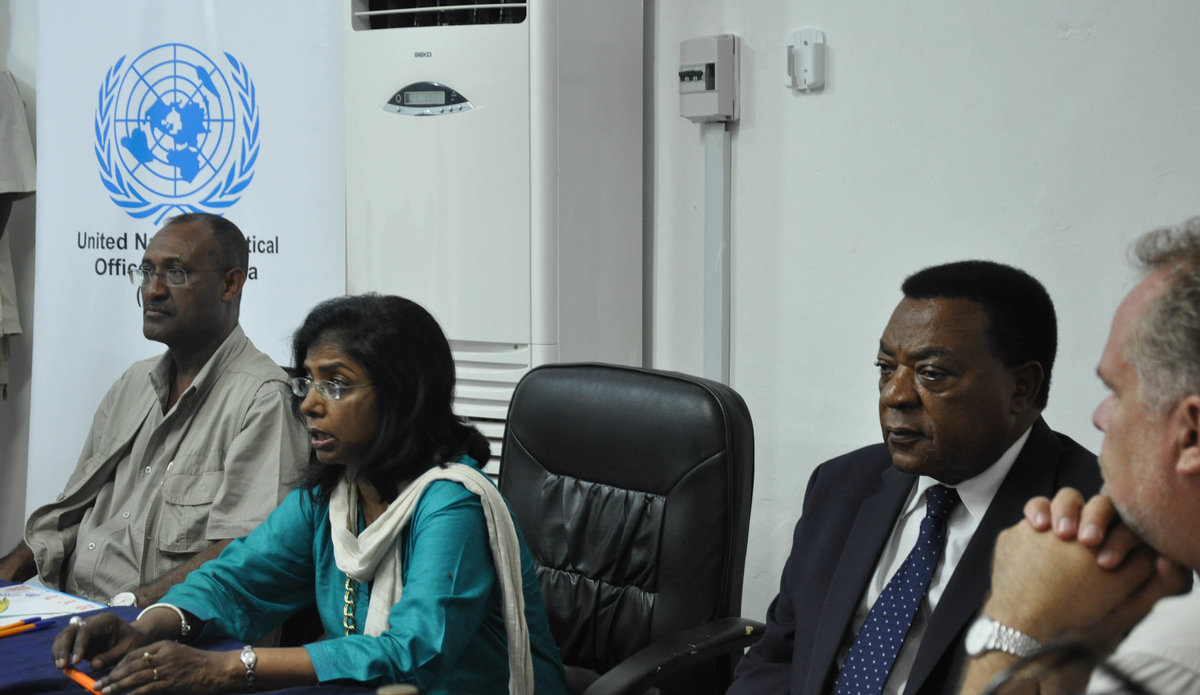Human Rights Due Diligence Policy and the UN support to security forces
Mogadishu, 13 November 2012 – A three-day Round Table organized by UNPOS on how to streamline human rights due diligence policy to the support that the United Nations is offering to security entities was concluded in Somalia.
The first part of the round table that took place in Nairobi specifically targeted the United Nations Agencies and Programmes, while the second part in Mogadishu brought together Somali National Forces, the Federal Government, Somalia Police Forces, Military Courts, Ministries of Justice and Defense, AMISOM and the UN.
Representatives from UN Peacekeeping missions in DRC, Cote D'Ivoire and South Sudan cited best practices such as the importance of bringing national stakeholders to a sound understanding of this policy as leverage to improve standards in security operations and the advantage of developing standard procedures on the application of the policy.
"It is important as Somalia rebuilds itself that its institutions are anchored on a foundation of human rights and the dignity of all people" said UN Under-Secretary General for Field Support, Ms. Ameerah Haq who presided over the closing session along with the Special Representative of the Secretary General for Somalia, Dr. Augustine Mahiga. "This is where UN support would extensively be provided", she added.
The Human Rights Due Diligence Policy (HRDDP) was endorsed by the UN Secretary-General Ban Ki-moon in July 2011, and constitutes a landmark measure to ensure that the UN lives up to its own normative standards by guaranteeing that its support to security forces and entities around the world is consistent with the organization's purposes and principles in the Charter and its obligations under international law to respect, promote and encourage respect for International Humanitarian, Human Rights and Refugee Law.
The Policy applies both to support extended to the Somali Forces as well as to AMISOM. "The policy presents a myriad of opportunities for building a security system with a strong human rights foundation in Somalia" said Ms. Silvia Lavagnoli, UNPOS Human Rights officer. "The policy is not intended to be punitive. It requires the UN to advise the appropriate national and regional authorities when there are grounds to believe that security forces may be committing grave violations and it is only if the situation persists despite our intercession that we would be obliged to suspend or withdraw support as a last resort" she added.
The participants highlighted the challenges of operating in Somalia and emphasized that a greater understanding is required of the areas of support to national security forces and on the role of militias operating with Somali government troops. The need to increase accountability vis-à-vis the conduct of supported entities, both Somali Forces as well as AMISOM, was stressed by Somali participants in the Mogadishu meeting.
Discussants in Nairobi and Mogadishu agreed that the first step to operationalize the policy and bring the security forces up to human rights standards would be to establish a coordination structure and develop a dissemination strategy which would engage donors.
 UN
UN



